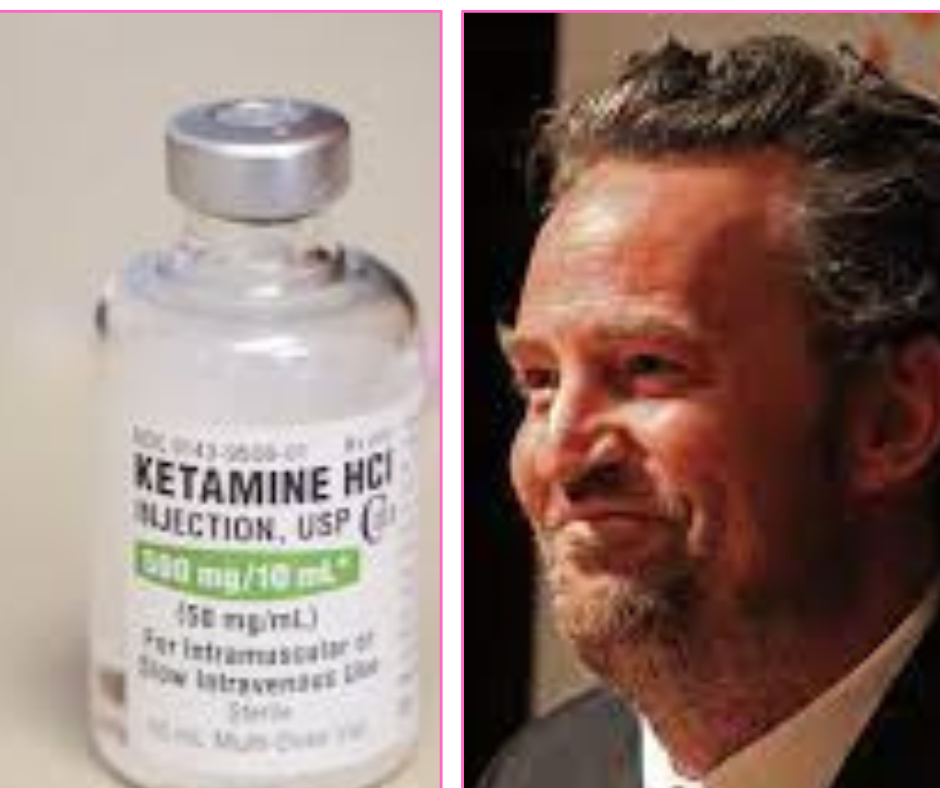Beyond Matthew Perry's Headlines
Methew Perry & Ketamine: Beyond the Headlines: A Story of Medicine, Misconceptions, and Hope

The recent news surrounding Matthew Perry's near-death experience and his open discussion about ketamine therapy has reignited public interest in this complex and often misunderstood substance. While headlines might paint a picture of a party drug or a dangerous medical experiment, the reality of ketamine is far more nuanced. It's a story of scientific discovery, evolving medical applications, and a glimmer of hope for those battling treatment-resistant mental health conditions.
Ketamine: A Multifaceted Molecule
At its core, ketamine is a medication with a long and storied history. Initially developed as an anesthetic in the 1960s, it became known for its rapid pain relief and ability to induce dissociative states, leading to its recreational use at nightclubs and rave parties. However, concerns about its potential for addiction and bladder damage led to stricter regulations and a shift in focus towards its therapeutic potential.
From Battlefield to Clinic: Ketamine Therapy Takes Root
The discovery of ketamine's rapid antidepressant effects in the early 2000s marked a turning point. For patients suffering from severe depression and suicidal thoughts, ketamine offered a beacon of hope where traditional medications had failed. Its ability to quickly interrupt the "negative feedback loop" of depression, allowing for a reset of the brain's reward system, offered a new avenue for treatment.
Acute Effects and Infusion Therapy: Navigating the Ketamine Experience
Ketamine infusion therapy, administered in a controlled clinical setting, involves receiving a low dose of the medication intravenously over a period of 40-60 minutes. The acute effects can be disorienting, leading to feelings of detachment, altered perception, and vivid dreams. However, these effects typically subside within a few hours, leaving behind a sense of emotional clarity and improved mood.
Beyond Depression: Applications in Chronic Pain, PTSD, and Beyond
The therapeutic potential of ketamine extends far beyond depression. Research suggests its effectiveness in treating chronic pain, post-traumatic stress disorder (PTSD), obsessive-compulsive disorder (OCD), and addiction. Its ability to modulate the glutamate system, a key player in mood and memory, makes it a promising candidate for treating a variety of neurological and mental health conditions.
Separating Fact from Fiction: Misconceptions and Responsible Reporting about Mathew Perry & Ketamine
The sensationalized portrayal of ketamine in the media can lead to misunderstanding and fear. It's important to remember that ketamine is a powerful medication with potential risks and side effects, requiring careful administration and monitoring by trained professionals. It is not a magic bullet or a party drug, and its use should be approached with caution and informed consent.
Matthew Perry's Story: A Catalyst for Open Conversation
While his experience should not be generalized, Matthew Perry's open discussion about ketamine therapy has sparked much-needed conversations about treatment-resistant mental health conditions and the potential of innovative therapies. His story highlights the importance of individual experiences and the need for personalized treatment approaches.
Looking Ahead: Building the Future of Ketamine Therapy
Ketamine research is still evolving, with ongoing studies to optimize its use and understand its long-term effects. Responsible research, combined with open communication and patient education, are crucial to ensure the safe and effective integration of ketamine into the treatment landscape.
Conclusion: A Beacon of Hope in the Shadows
The story of ketamine is far from over. From its humble beginnings as an anesthetic to its emerging role in treating some of the most debilitating mental health conditions, it represents a beacon of hope for millions struggling in the shadows. By approaching ketamine with understanding, respect, and a commitment to responsible research, we can unlock its potential to heal and empower, ensuring that Matthew Perry's story serves as a catalyst for positive change and a brighter future for mental health care.
